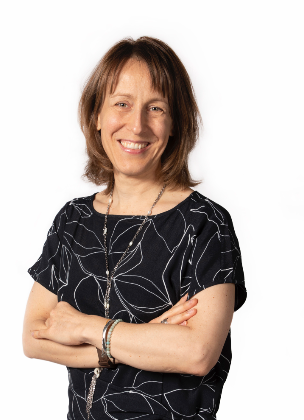Vodafone Egypt as a corporate brand is known to be a responsibly sustainable brand, guided by their purpose to connect for a better future. To further tighten this brand position, Vodafone Egypt has been announced by Egypt’s ministry of foreign affairs as the strategic communications partner of COP 27, UN Conference of Parties on Climate Change.

We’ve exclusively chitchatted with Ayman Essam, Vodafone Egypt’s Director of Legal and External Affairs, to experience how Vodafone talks the talk and walks the walk when it comes to building a breakthrough purposeful sustainable brand.
BB: Walking The Walk: Globally influential, brave and courageous brands like Vodafone are committed to all areas of sustainability and are working towards a greener future for consumers and citizens of the world. Can you walk us through the fundamental highlights of Vodafone Egypt’s sustainability strategy?
AE: At the core of our purpose is our commitment to sustainability, and we are tirelessly searching for ways to expand our positive impact. Being a purpose-led company, and in line with the path of Vodafone Group, Vodafone Egypt harnesses its expertise and capacities to enable digitalization and inclusion which don’t come at a cost to the environment. Our integrated Economic, Environmental, Social and Governance (EESG) approach contributes to surfacing hidden sustainability thematic areas where we believe we would have the biggest impact in and what we want to be known for over the next years as the nation’s largest telecommunication company.
So, of course we are 100% committed to all areas of sustainability, towards a better life for all of our customers and for our societies. And we are continuously working on achieving our sustainability goals to ensure the best outcome from our strategy.
We have mainly focused on developing our products and services to be greener and more sustainable, to be also in line with Egypt’s visions 2030 and the National climate change strategy 2050.
Our strategy focused on developing our services that we offer, so we became the first mobile network in Egypt to offer a sim card for mobiles that conforms to the environmental specifications “ECO-SIM”, which is made of 100% of recycled plastic materials, to significantly reduce carbon emissions, as this step will enhance Vodafone’s strategy to preserve the environment, and spread environmental awareness among Our client base, which amounts to more than 44 million customers.
In addition, Vodafone strives to save energy by using renewable energy in operating the network and reduce greenhouse gas emissions to preserve the environment, by establishing solar power plants to generate electricity and rationalize energy consumption, as a solar power plant was built in the Beni Suef building to manage our data centers, and covering the roofs of the main building with solar panels, as well as working to modernize the stations with modern energy-saving devices and equipment.
Vodafone’s sustainability strategy is not only at the level of network operation, but also all the company’s facilities and branches, we have developed a system to preserve the environment, including replacing lighting lamps with energy-saving lamps in all its facilities, in addition to replacing all plastic materials and non-essential paper in our retail stores all over Egypt in order to avoid its severe damage to the environment and health.
We believe in our responsibilities at Vodafone towards our society aimed at facilitating and facilitating the daily life of the citizen by providing technological solutions, communication services and digital services to empower the community. Our digital networks and services play a major role in enabling many key sectors, especially the agricultural sector, to become more productive and sustainable, through a set of technological solutions that control consumption rationalization, facilitate many productive steps for farmers, save time and energy, and increase production.
BB: Digitization and Sustainability: Vodafone’s brand DNA is all about connectivity for a better future and a better digitally-connected society. In your opinion how Vodafone is leveraging tech and digital transformation in developing socially-responsible, environmentally-friendly tech products?
AE: At Vodafone, we act responsibly and ethically, wherever we operate, guided by our purpose to connect for a better future, by enabling inclusive and sustainable digital societies leaving absolutely no one behind.
We have a lot of positive experiences in the development of industries like agriculture, as our digital networks and services play a major role in enabling the sector to become more productive and sustainable, through a set of technological solutions that control rationalization of consumption, facilitate many productive steps for farmers, save time and energy, and increase production.
We aim to implement more effective agricultural and food systems with a focus on digital literacy for farmers, developing their digital capabilities to achieve digital economic empowerment and transforming the agricultural community into a secure interactive digital society and producer by integrating communications and information technology based on smart IoT solutions, in addition to providing energy sources and rationalizing their consumption.
With the help of our digital solutions, we hope to help the irrigation and agriculture industries by providing more than 18 billion cubic meters of water. We also work to support the system by providing technological irrigation solutions, such as drip irrigation or spray irrigation, which would save 30% of irrigation water, 10% of fertilizers, about 20% of energy, and up to 30% of productivity.
Vodafone Egypt also provided applications and technological solutions in cooperation with the government and various institutions, including the “Ta3limy” platform, which is the first interactive educational platform that serves more than 2 million Egyptian students, and aims to develop digital education in all its stages.
This is in addition to more than 1,000 network sites installed in the villages of a decent life to allow better communication for the unprivileged citizens, for example schools and orphanages, in addition to providing digital education within 100 schools in the villages in cooperation with “Decent Life” through the integration of technology and infrastructure digital education and the provision of content to online schools to include more environmental awareness starting from the new school year.
BB: Towards A Decarbonized Future: One of the flagship sustainability goals of Vodafone as a corporate brand is to help customers reduce their carbon emissions by a cumulative total of 350 million tonnes globally between 2020 and 2030. Where does Egypt fall from this global sustainability goal ?
AE: Vodafone Egypt is the only mobile operator to have the energy certification ISO 50001 to demonstrate that we have an efficient energy-management system for our operations. We are also the first to have introduced the ECO Sim-card in Egypt, which would be made entirely of recycled plastic. Vodafone Egypt has more than 150 network sites in Egypt that are powered by renewable energy, our headquarters, and data center are solar-powered energy, and we are committed to achieving 100% renewable energy by 2030.
All non-essential plastic is gone from our retail locations, which are entirely digital and paperless. We safely recycle all of the garbage from our network with certified recyclers.
We partnered with the ministry of the environment at the government level to launch E-tadweer and encourage the recycling of electronic waste. In less than a year, 50 tonnes of electronic waste were diverted from land fields, and 10 tonnes of our electronic waste were donated to support the green initiative and begin the cycle.
BB: Vodafone X UN SDGs: Vodafone Egypt’s commitment to sustainability comes in coherent synchronization of UN’s sustainable development goals. Please comment by highlighting how Vodafone Egypt is actively contributing to an influential implementation of these SDGs?
AE: At the core of our purpose, we strongly believe that we need to protect the planet where we live and breathe in, and we are fully committed to reducing the environmental impact of our own activities and supporting the delivery of the UN Sustainable Development Goals (SDGs).
We are working to reduce our environmental impact to reach ‘net zero’ carbon emissions across our own operations by 2030, help society decarbonize, use energy more efficiently, and create a more circular economy.
Our networks and digital services play a critical role in saving energy, creating cleaner cities, and enabling key sectors like agriculture to become more sustainable and efficient.
By bringing together connectivity, technology, and smart solutions while focusing on digital literacy and skills and enabling access for all, we can help bridge the rural/ urban divide and the digital gender gap; We can create new jobs, empower farmers to increase production sustainability while reducing their environmental impact, and eventually, break the cycle of food insecurity.
This can only happen with a cross-sectoral approach – no one company, government, or institution has the means or capabilities to deliver the digital transformation at the scale and pace required.
For Vodafone, our most important contribution to adapting to climate change is by enabling our customers (including businesses and governments) to reduce their environmental footprint, use energy and water more efficiently utilizing our digital technologies and services.
Through connectivity and smart IoT solutions, we are transforming industries, while creating value and helping to improve natural resource efficiency and productivity, reduce waste and pollution, and contribute to adapting to climate change.
At Vodafone We Digitize the Society to make people’s lives better/ create a sustainable digital future for everyone leaving no one behind.
BB: Customer-Centricity Approach: A recent study by Dentsu International and Microsoft Advertising confirmed that 77% of global consumers are more likely to spend money with brands who are practicing green and prioritizing the environment than others. Please comment with a mention on the customer-centric approach of Vodafone Egypt’s sustainability strategy.
AE: We believe that prioritizing the environment, and going green isn’t only to generate sales, but to take a serious action towards the modern-day climate challenges, so a big part of our sustainability strategy is all about caring for the environment for a better future for all. So we built our plans based on sustainability and going green, as we also focused on going in line with Egypt’s vision towards digitisation.
During the past years, our lasting investment into digitalization has started to leverage impact and deliver benefits at scale. At the same time, we entered many new segments where understanding of the potential digital solutions is just starting to emerge.
Such a combination of new and established markets marks a defining quality of digitalization – it’s all-encompassing yet often barely seen. For years, Vodafone Egypt has invested in delivering market-leading solutions to its private and business customers, carefully tailoring our offer to evolving needs and preferences.
Building on lasting and trustful relationships with our customers, we have also invested in helping them gain greater convenience, resilience and agility to succeed in the fast-paced world.
BB: Sustainability, Reset and Redefined For 2023: As a well-versed external affairs senior executive, can you list some of your predictions for the regional sustainability landscape in MENA in 2023 and beyond?
AE: I’m optimistic for the future sustainability plans in the region, especially after this COP27 it will open the doors to have more investments in the sustainability-related projects, as Egypt has begun to receive offers from foreign countries that will invest in the promising sustainability landscape in Egypt.
I can predict that the region will take big steps towards a sustainable future for the upcoming generations, and Egypt will be the start point in the MENA region in leading other countries towards sustainability and going green, as holding COP28 in the UAE will assure implementing COP27 plans and building new strategic plans accordingly.
Egypt has a huge interest in organizing a lot of environmental projects, especially in the solar energy and recycling projects, and Egypt has clear plans for renewable energy, such as the green hydrogen which will be tackled in 16 MOUs that will be signed during COP27.





